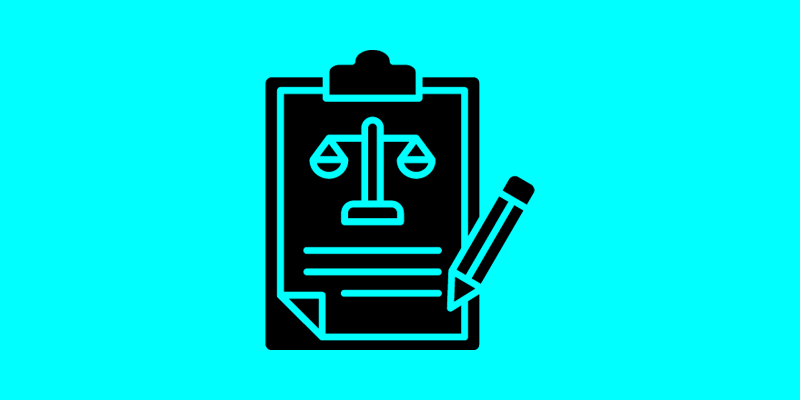Addressing the Complexities of Financial Rules
The financial industry operates within a labyrinth of rules, regulations, and compliance standards that are designed to maintain transparency, protect investors, and ensure the stability of the global economy. Achieving and maintaining regulatory compliance is a complex and resource-intensive process for financial institutions. However, the advent of Artificial Intelligence (AI) is reshaping the landscape by offering innovative solutions to streamline and enhance regulatory compliance.
The Regulatory Compliance Conundrum
For financial institutions, regulatory compliance is not merely a choice; it’s a legal and ethical imperative. Banks, insurance companies, investment firms, and other entities must adhere to a vast array of regulations, including anti-money laundering (AML) laws, Know Your Customer (KYC) requirements, data privacy laws, and many more. Here’s where AI steps in to revolutionize the compliance process:
KYC and Customer Due Diligence (CDD)
AI-powered systems are incredibly efficient at conducting background checks on customers. They can swiftly analyze vast datasets, flagging individuals or entities that may pose a risk. Here’s how AI improves this critical area of compliance:
- Enhanced Data Analysis: AI systems analyze a customer’s historical data, looking for unusual behavior or inconsistencies that might signal a red flag
- Identity Verification: Facial recognition and document verification systems enhance the verification process, reducing the risk of identity fraud
Anti-Money Laundering (AML)
AI’s data analysis capabilities are incredibly valuable in AML compliance:
- Transaction Monitoring: AI systems can analyze millions of transactions in real-time, identifying suspicious patterns and alerting compliance officers to potential money laundering activities
- Risk Assessment: Algorithms can assess the risk associated with different customers or transactions, helping institutions focus their compliance efforts where they are needed most
Regulatory Reporting
The task of preparing comprehensive reports for regulators can be arduous. AI can assist in:
- Data Extraction: AI systems can extract the necessary data from internal systems and databases, saving countless hours of manual work
- Data Accuracy: Automated systems minimize the risk of human error, ensuring that reports are accurate and dependable
Cybersecurity and Data Privacy
In the era of data breaches and cyber-attacks, securing customer data is a top priority. AI can:
- Identify Anomalies: AI systems are adept at identifying unusual activities that may indicate a security breach
- Data Encryption: AI-powered encryption solutions can protect sensitive data from unauthorized access
Benefits and Advantages of AI in Compliance
The advantages of AI in regulatory compliance are many:
- Cost Savings: AI reduces the need for manual data analysis, saving financial institutions significant labor costs
- Enhanced Accuracy: The risk of human error is mitigated, as AI processes are consistent and precise
- Real-Time Monitoring: AI systems can analyze data in real-time, providing instant alerts to potential compliance issues
- Scalability: AI systems can manage increasing volumes of data and compliance tasks as institutions grow
- Improved Decision-Making: AI helps compliance officers make informed decisions based on data-driven insights
Challenges and Concerns
While AI offers substantial advantages in regulatory compliance, several challenges and concerns must be addressed:
- Data Privacy: Managing vast amounts of sensitive customer data requires stringent data privacy safeguards
- Regulatory Changes: Compliance regulations can change frequently. AI systems must be adaptable to these shifts
- Bias and Fairness: AI algorithms can unintentionally introduce bias. Ensuring fairness and transparency is essential
- Integration: Implementing AI into existing systems can be challenging and may require substantial changes to infrastructure
The Future of AI in Regulatory Compliance
The future of AI in regulatory compliance holds immense promise:
- RegTech Innovation: RegTech, or Regulatory Technology, will continue to develop with AI at its core
- AI-Powered Audits: Auditors will increasingly use AI to identify and assess potential compliance issues
- Interoperability: AI solutions will become more interoperable, allowing for seamless integration into existing systems
- Predictive Compliance: AI will move from merely identifying issues to predicting them before they occur
The intersection of AI and regulatory compliance is a transformative force in the financial industry. As AI continues to evolve, financial institutions will find themselves better equipped to navigate the complex and ever-changing world of regulatory compliance. By automating time-consuming and repetitive tasks, enhancing data analysis, and providing real-time monitoring, AI is driving a compliance revolution that will benefit both the industry and its customers.
Financial institutions that embrace AI in compliance will not only find themselves more efficient and cost-effective but also better positioned to meet the demands of a dynamic regulatory landscape.
